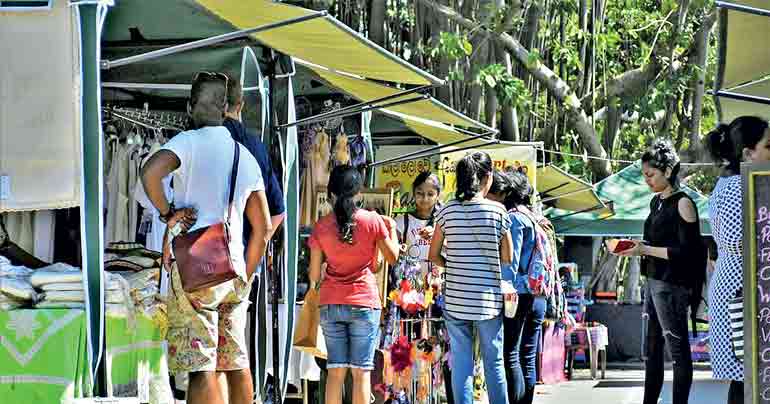Monday Feb 23, 2026
Monday Feb 23, 2026
Tuesday, 2 September 2025 00:36 - - {{hitsCtrl.values.hits}}

Social entrepreneurship speaks directly to our current crisis
Sri Lankans have long argued about systems. Some still believe in the old socialist dream, that if the State simply redistributes resources, all will be well. Others pin their hopes on capitalism, imagining that a market left unchecked will lift everyone. What we see, however, is that both extremes leave people disappointed.
The socialist impulse is alive in our politics, even today. Many ordinary citizens speak of “taking from the rich and giving to the poor” as though that alone will resolve structural poverty. At the same time, capitalism in its rawest form, obsessed with profit and indifference to justice has only widened inequality. Between these two poles, Sri Lanka struggles to find a path that secures dignity, opportunity, and sustainability.
A revealing comment
 One young man recently commented on a video uploaded by a Sri Lankan influencer. He said the money she spent in a single day was equal to his entire monthly earnings. His plea was simple: the government should take from the wealthy and support people like him. It was a heartfelt, honest cry. And it also captured the frustration of thousands who feel trapped between capitalism’s excess and socialism’s nostalgia.
One young man recently commented on a video uploaded by a Sri Lankan influencer. He said the money she spent in a single day was equal to his entire monthly earnings. His plea was simple: the government should take from the wealthy and support people like him. It was a heartfelt, honest cry. And it also captured the frustration of thousands who feel trapped between capitalism’s excess and socialism’s nostalgia.
Beyond binaries
The point is not to dismiss either system. Both capitalism and socialism, at their best, contain aspirations worth protecting efficiency on the one hand, fairness on the other. But when pushed to extremes, they become distortions. Pure capitalism rewards greed. Pure socialism kills initiative. Neither can, on its own, deliver the society Sri Lankans hope for.
So, the real question is: how do we move forward, past these tired binaries?
Social entrepreneurship as a third path
There is space opening between these old models. Across the world, and increasingly in Sri Lanka, we see businesses that are not satisfied with chasing profit alone, nor with handing out charity. These ventures create livelihoods but also restore dignity; they generate profit but reinvest in people and planet. This is the space of social entrepreneurship. Unlike traditional business, its worth is measured not only in numbers but in lives touched. Unlike old-style socialism, it does not depend on the State to redistribute. It thrives because it blends sustainability with compassion.
Sri Lanka already has homegrown illustrations of this idea. “Good Market” has shown that platforms can bring together ethical producers and conscious consumers, creating an ecosystem of trust. “AMBA” community owned tea estate has transformed plantation workers into artisans, paying fair wages, building skills, and exporting artisanal tea to global markets. These stories remind us that our economy need not be trapped in old categories.
Why this matters now
Social entrepreneurship speaks directly to our current crisis. Households are under pressure, villages are under pressure, the nation is under pressure. The only way to strengthen the whole is to strengthen the parts. When a family earns a stable livelihood with dignity, they educate their children, invest in health, and uplift their community. When communities thrive, the nation follows. Social entrepreneurship is not a passing trend. Globally, it is reshaping economies—from microfinance in Bangladesh to impact-driven start-ups in Europe. For Sri Lanka, it offers something far more urgent: a way to restore hope.
A different economic vision
We cannot afford to cling to old binaries of capitalism versus socialism. We need an economy that values profit, but not at the expense of people; that uplifts the vulnerable, but not by stripping away ambition. Social entrepreneurship provides that balance. It offers a way to rebuild not only incomes, but also trust, dignity, and resilience.
This is the path Sri Lanka must explore with courage. It is neither left nor right. It is forward.
(The writer is a PhD scholar in Social Entrepreneurship, and Lecturer at the Faculty of Management, Uva Wellassa University.)